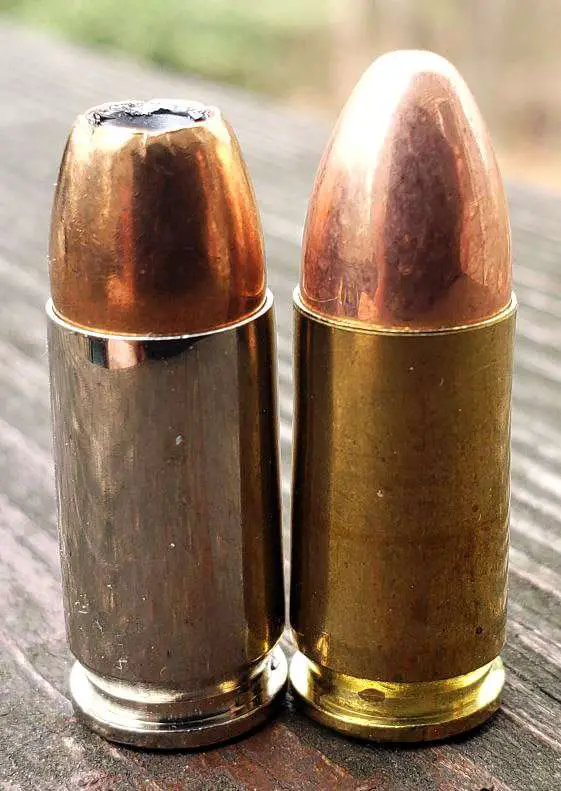
The internet is filled with many different opinions on what is right or wrong regarding what type of ammunition you should use in any given situation. While many of the opinions out there mean well, some of them are false, or baked in half truths.
Based in fact, let’s examine the answer for the following question –
Can you use 9mm FMJ for self-defense?
Yes, you can but you should only use this type of ammunition if you don’t have proper self-defense ammunition. FMJ is less effective against an attacker and poses other problems.
9mm FMJ, or full metal jacket (which are also called ball or target rounds), have inherent problems that other ammunition types won’t have.
However, you can use them if you have nothing else even though some keyboard warriors will tell you that you should never, under any circumstances, use FMJ for self-defense.
Now that we’ve determined that you can use FMJ for self-defense, let’s look at why this is actually a pretty bad idea.
9mm overpenetration
Overpenetration is what happens when the round passes through the target and can move on to hit another target. This is something that can be dangerous for other people.
This is a term that gets thrown around a lot by folks, but it isn’t something that is necessarily understood.
Any bullet fired from a gun has the chance to go completely through its intended target. The problem is that 9mm FMJ, specifically, passes right through the torso of a target more often than not.
The reason why it does this, is because FMJ bullets are not designed to expand when they hit something wet like the inside of a human body. Hollow points are designed to do just that.
Because the hollow point expands (gets bigger) it has a wider surface area to help slow it down before it leaves the target. Thus, the bullet stays inside the torso when proper JHP (jacketed hollow points) are used.
Read up on 9mm ballistics next.
Why are 9mm FMJ less effective than JHP?
FMJ ammo does not expand the same way a JHP round does. Because it doesn’t expand it transfers less of the bullet’s energy to the attacker and does less damage internally because there is not as much surface area.
The jacketed hollow point bullet is designed to expand when it hits something wet like the inside of a human body. Because it does this, the surface area is bigger and has a bigger chance of hitting an organ.
Also, because the surface area is bigger the bullet travels slower through the body and has the chance to transfer more energy for a longer period of time.
When a FMJ round passes through the body it doesn’t transfer all of its energy because it is still moving.
A hollow point that stops inside of the body actually transfers all of its energy to the body of your attacker.
Hopefully I don’t have to say that full energy transfer is a good thing.
9mm FMJ for SHTF
We can all agree that jacketed hollow point ammo, also known as JHP, is the best to stop an attack. The reason why, as pointed out above, is because they expand and are better able to stop a threat.
But there is a reason why many folks buy regular bulk FMJ, or target round, ammo. You can buy more of it for cheaper than you could hollow points, and they are still effective, even if less so.
For long term defense, meaning after a SHTF event, you’ll use what you have. If what you have is FMJ, then it’s the best thing for you.
For reasons like this, and after the crap hits the fan, I buy bulk 9mm rounds. You should too.
Conclusion:
Can 9mm FMJ be use for self-defense? It can, but the better question is, should it be used for self-defense when there are better options? The answer to that is a resounding no.

